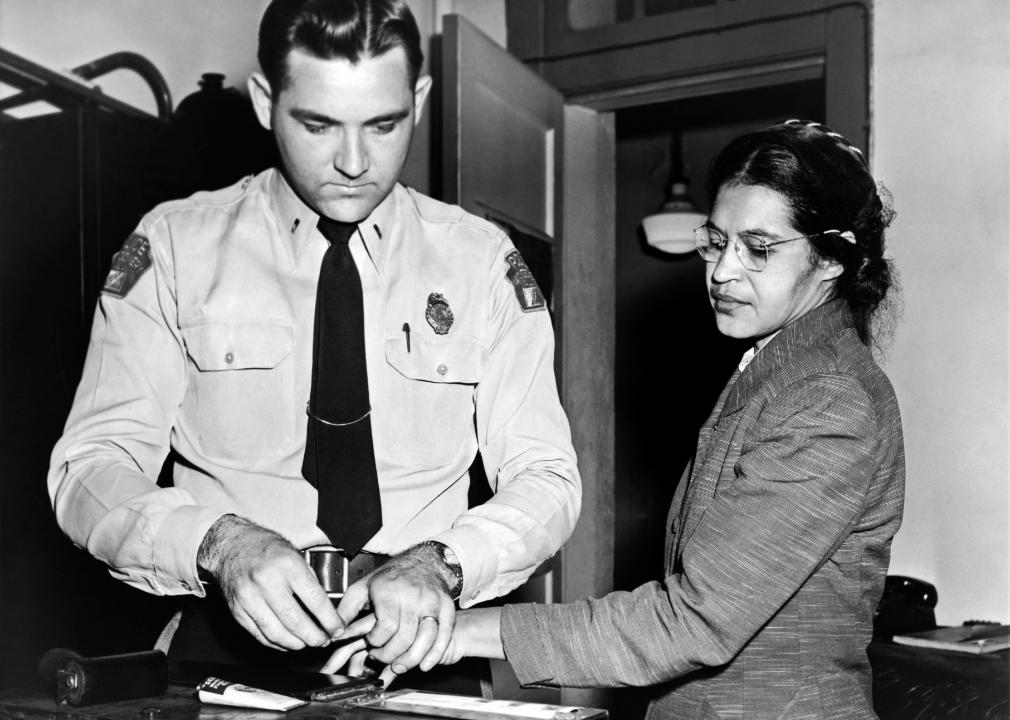Rosa Parks takes a stand: A major civil rights moment in Alabama
Published 1:53 pm Wednesday, September 29, 2021
Underwood Archives // Getty Images
Rosa Parks takes a stand: A major civil rights moment in Alabama
A land of contradictions from the outset, the United States was founded by slave owners who spoke passionately and eloquently about liberty, freedom, and justice for all. In the beginning, “all” was limited to men of European ancestry who were wealthy enough to own land. The Constitution’s protections did not apply to most of the people living in America for most of America’s history—at least not in full.
Women—about 50% of the population—were not included in the country’s concept of “all,” likewise millions of slaves—and for a long time, their offspring. Native Americans, the descendants of the original inhabitants of the United States, were commonly excluded from the promise of America, as were many immigrants, ethnic groups, and religious minorities.
Despite all the work that remains to be done, all of those groups and many others now enjoy freedoms that had to be won—won through the courts, through the court of public opinion, through mass demonstrations, through legislation, through boycotts, and in many cases, through martyrdom.
Fighting to expand the definition of “all” requires powerless people to challenge the power structures that benefit from keeping certain people locked in their status as second-class citizens. They often do it at great risk to their jobs, their reputations, their homes, and in many cases, their lives. Even so, brave advocates and activists fought the good fight in every state in America. Each state has a unique story to tell about the epic struggles for civil rights that were waged there, as well as those that continue to be waged. The following is a tiny sliver of their collective efforts.
Using a variety of sources, Stacker identified a defining moment for civil rights in all 50 states. They stand out for different reasons and led to changes that lifted different groups, but they all prove how much can be achieved—and how much still remains to be accomplished.
Keep reading to find out your state’s contribution to civil rights.
Alabama: Rosa Parks takes a stand
The March from Selma to Montgomery took place in Alabama, as did the bombing of the 16th Street Baptist Church and some of the most important Freedom Rides. One moment, however, stands out as dramatic and consequential, even by the standards of Alabama during the civil rights era. On Dec. 1, 1955, the arrest of 42-year-old seamstress Rosa Parks for refusing to give up her seat on a city bus led to the Montgomery bus boycott, the first great victory of the movement.
Click here to see an event from every state or continue reading for other events near Alabama.
Florida: A sea change starts in a swimming pool
On June 18, 1964, civil rights activists went into the whites-only pool of a segregated motel in St. Augustine, a hotbed of racial strife in Florida. The motel’s owner, James Brock, responded by pouring deadly muriatic acid into the water. Although the incident is largely forgotten now, it caused national outrage and helped to end an 83-day Senate filibuster on the Civil Rights Act, which was passed the very next day.
Georgia: A King is born
The America that exists today would certainly look much different had a baby named Michael King not been born in Atlanta on Jan. 15, 1929. When his parents changed his name at six years old, the child became Martin Luther King Jr., the most revered and successful civil rights leader in history. He would go on to lead the Montgomery Bus Boycott, articulate his vision at the March on Washington, become history’s youngest Nobel laureate, and wage his crusade for justice and equality through nonviolence.
![]()






